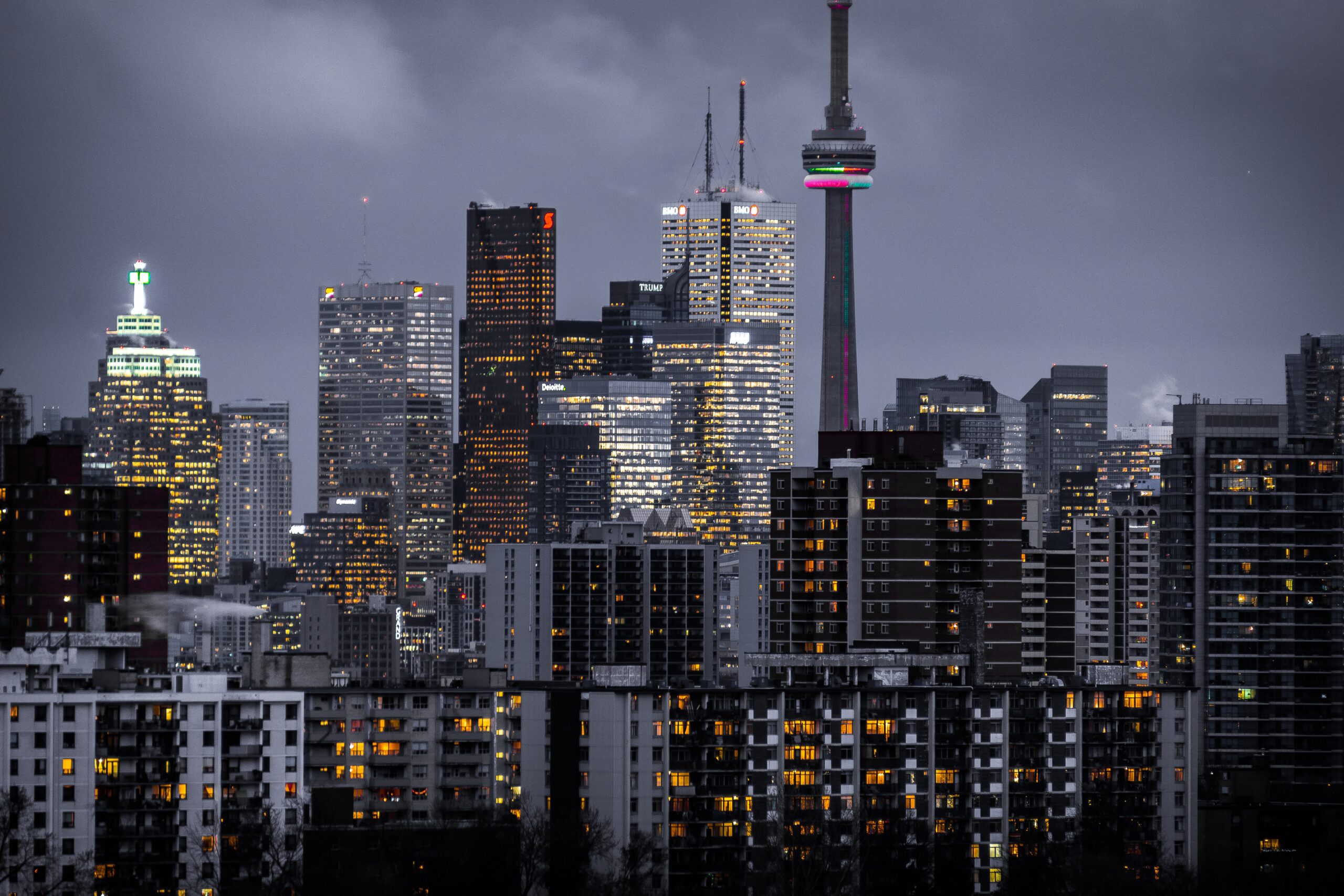“Oh, England is a pleasant place for them that’s rich and high, but England is a cruel place for such poor folks as I…”
– Charles Kingsley’s The Last Buccaneer
There was a time when it was much less expensive to live in Toronto as some candidates for mayor in the upcoming election like to remind us.
Olivia Chow remembers that when she was a young girl her mother was able to pay the rent and feed her family on “her little salary working as a hotel maid”.
Times were simpler then. Everything cost less. Food, rent, transit, and entertainment. Four TTC tickets (yes, there were tickets) cost $1. A local postage stamp cost 15 cents.
On a factory worker’s salary, one could leave the supermarket with multiple bags of groceries.
And a small bungalow could be purchased for as little as (or under) $25,000. That house would now be worth close to (or more than) $1 million.
We are hearing a lot these days about housing and how unaffordable it has become. That there are so many people unable to get into the housing market has become a major political talking point with a lot of blame going around.
Our federal government, for example, has decided that foreigners purchasing homes in Canada is a problem, so a ban of two years has been imposed on such purchases. At the same time, the same government has announced that it would allow close to half-million immigrants into the country for each of the next five years. That’s two-and-a-half million people – many of them coming to Toronto – who would be looking for housing, jobs and other services.
The government isn’t in the habit of letting in the poorest and neediest so we should expect that a lot of those coming in would be professionals and people of means who would not only be competing for the better jobs but also looking to purchase a home, thus adding to the problems local prospective home purchasers are already facing.
Depending on which country they are coming from, or their international experience, they would also see our real estate prices as a bargain.
The biggest investment
The problem is not the people who already own a home or two. The problem is that demand vastly outweighs the supply and would only get worse. There are not enough homes available for all who want to purchase one. And that is one reason for the increase in the cost of housing. Then there are all the taxes and fees the various levels of government add on.
By the way, just as there are many people today who can’t afford the cost of a house and feel they would never be able to do so, when the cost was $25,000 there were many who also felt the same way. Now most would be able to purchase that house at that price on their credit card. Maybe, sometime in the future, $1 million would also seem a bargain as it does now in New York, London and some other major cities.
Housing has always been sold – and promoted, both by politicians and people in finance – as the “biggest investment most people will make in their lifetime”.
As the value of housing has increased, homeowners have been able to access credit to send their kids to college, help them get married, take expensive vacations and live a relatively comfortable life. Others have been able to leverage the value in their homes to purchase stocks and bonds – as investments.
Some, on the other hand, chose to invest in real estate, even sacrificing some of the finer things in life in order to do so.
For a lot of Canadians, especially new immigrants, real estate has been a ticket out of poverty.
For politicians and social activists to single out or demonize people owning more than one property as the problem where affordable housing is concerned is unfortunate. It is also a distraction.
It is the government’s role to provide affordable and social housing. Not the private sector. And not your neighbour.
But that takes political will. And lots of money.
The choice Torontonians have
The largest and most reliable source of revenue for the city is property taxes. When the candidates running for mayor promise not to raise taxes or to keep any increase at a minimum, they are promising to cut off access to funds they would need to fulfill their promises of more affordable and social housing, improved public transit, better public safety and all the other services and programs they are offering.
These people want to get elected so they are prioritizing their political careers. Someone once said that ‘you don’t get elected promising to raise taxes’. Then when there isn’t enough money to fulfill their promises, they point their fingers at others.
The increase in the price of real estate in the city doesn’t happen in a vacuum. Every four years, the municipality reassesses the value of real property in order to establish a tax rate based on its budgetary needs to fund its services and programs. The increase in the value of the property results in an increase in the property taxes and revenue. It is in the interest of the municipality – in our case, the City of Toronto – to increase the cost/value of property. (Our current property value is based on the 2016 assessment as the 2020 assessment was postponed during the pandemic.)
So, when the candidates and other politicians blame others for the cost of housing, they are not telling the whole story. Just based on the city’s assessment alone, a small one-bedroom condominium could cost $400,000 which will still be out of reach for a lot of would-be homeowners.
Most of the top tier candidates running for the job of mayor of Toronto are either current or past councillors. So, they know this. They are familiar with the workings of council and the way taxes and fees add to the cost of housing. They also know, firsthand, all the added costs the city levies on new builds and the fees such as the land transfer taxes which add thousands of dollars to the purchase price of a house.
The city makes a lot of money from the real estate market. In attacking real estate investors and threatening them with higher fees while promising to hold the line on property taxes, these politicians are doing two things: they are sewing seeds of division for political gain while also placating the long-time owners in order to win their votes.
None of these candidates will be able to provide the housing they are offering without significantly raising taxes or drastically cutting back services, even with the help of the other levels of government. To say otherwise is just plain dishonest.
As former CNN host, Don Lemon liked to say: “Don’t fall for the okie-doke”.
Those candidates who have been on council, some for many years, are responsible in great measure for the problems in which we find ourselves. Had they done their jobs – what they are promising to do now – we would not be in this mess with so many Torontonians having to be homeless and struggling to make ends meet.
When politicians are unable to cooperate and compromise on policies that would allow for the building of more affordable housing, especially in areas where local homeowners might not be supportive, then affordable housing doesn’t get built.
We could – and should – do better. So, let’s turn this thing around. What do we want our city to be? The politicians will tell us what they think we want to hear; what they think will get them our votes and not scare us off.
But what do we want?
A lot of people in this city are very well off. While we hear much about how terrible things are and how expensive the cost of food is, most supermarkets are filled to capacity on the weekends with overflowing shopping carts rolling out the doors to shiny new cars and trucks. Top ticket entertainment shows are sold out in minutes at exorbitant prices. Our ball parks, stadiums and sports centres are filled to capacity as we pay top dollar to see the games.
This is not a downtrodden, sorry excuse for a city as some would have us believe – for “them that’s rich and high”. However, the long and growing lines at the food banks tell us that it is also “a cruel place” for many.
If you think we could do better as a city for those among us who are not able to fend for themselves; who are not able to find proper housing; whose only relief from hunger for themselves and their children is to line up for hours at a food bank, you have to let the politicians know that you are ready for them to make the difficult decisions; the hard choices. And to be honest with us.
It’s a long time since we have been known as “Toronto the Good”. We could decide if that is what we want to be again by choosing a candidate who will lead in that direction.
Or we could decide not to care. We always have that choice.
___________________________________________________
This commentary was originally published in Share Newspaper, which is in its 46th year of publishing.

Arnold A. Auguste
Arnold A. Auguste is the founder and publisher of Share and a senior editor. Aguste came to Canada from his native Trinidad and Tobago in 1970 and began his journalism career as a columnist with a weekly publication in Toronto in 1972. He worked as a reporter while studying journalism at Ryerson Polytechnic Institute (now Toronto Metropolitan University) and left that publication as managing editor in 1978 to start Share. Over the years, Share has grown to become one of Canada’s largest and most influential ethnic newspapers and by far the largest one serving the Black and Caribbean community in the GTA.




